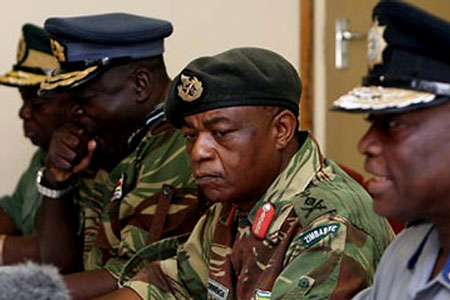
As the rhetoric and clamour for elections gathers momentum, it is convenient to warn fellow citizens of the challenges that lie ahead. The formation of the inclusive government in 2008 masked deep-rooted decay in the politics of Zimbabwe and it is these challenges that haunt and will continue troubling citizens as we approach elections and thereafter.
Sunday View by William Muchayi
It has been the suspicion of many within the opposition circles and outside that Morgan Tsvangirai defeated Robert Mugabe convincingly in the first round of elections in 2008, but was robbed of victory as the latter connived with Zimbabwe Electoral Commission (ZEC) to create a false scenario whereby none of the adversaries scored more than the 50% benchmark to have an outright victory, hence the need for a run-off. As Baba Jukwa’s revelations on social media reveal, Tsvangirai did garner 67% of the vote compared to Mugabe’s mere 28,7%. However, Tsvangirai was robbed of victory culminating in the run-off which he boycotted in protest of intimidation and violence.
Five years after the signing of the GPA, it is regrettable that no meaningful reforms have been implemented. The security sector is still as intact as it was before. The same generals who were behind the 2008 atrocities are still in their war trenches, with some of them even promoted to higher ranks as a reward for the role they played in propping up the regime. Recently Zimbabwe security minister Sydney Sekeramayi was quoted arguing that a call for the security sector reform is uncalled for as it is tantamount to a call for regime change. For Mugabe, maintaining the status quo in the security sector is a matter of survival as opposed to luxury. He has lost all respect among the electorate and for him to maintain his power he needs the backing of the military. Much is also at stake for the generals.
Victory for the opposition would leave them vulnerable as they are forced to answer charges of human rights abuses which hang around their necks. Also, they cannot afford to let go all the fortune they have amassed throughout the reign of Mugabe. A Tsvangirai victory is a threat to all that they have accumulated. Moreover, the same individuals are following events around the continent, for instance, the surrender of Bosco Ntaganda of the DRC before the ICC in the Hague. Because of the above reasons, Mugabe will never give in to demands for security sector reforms and the opposition has to live with this reality. The old mentality of Mugabe and his security chiefs has not yet changed and because of that they will fight to the end to rob Tsvangirai of victory again. Faced with this reality, the MDC seems to be powerless to effect change from within as was the hope when they entered into this marriage of convenience, leaving the playing field as uneven as before in Mugabe’s favour. The chances of falling back into anarchy as in 2008 are as real as ever.
There have been no meaningful media reforms since 2008. The clampdown by the partisan police on people using small wind-up radios is an attempt by Mugabe to restrict the electorate’s access to information. The dysfunctional ZBC that propagates Zanu PF propaganda is viewed by the regime as the right source of information for the electorate. The awarding of licences to two new players to broadcast is a non-event as they are all linked to the regime. In a sense, it is just an extension of Zanu PF’s control of the airwaves. Posa and Aippa are still at the regime’s disposal to stifle freedom of speech and expression.
Perpetrators of the 2008 atrocities are still roaming the streets with none of them having been brought to the courts. These thugs are well-known but are in the safe hands of those who feed them. With most of them reported to be on government’s payroll, they just wait for a call to unleash their reign of terror. The judiciary on the other hand is rendered powerless to prosecute the criminals, as it has compromised itself in favour of the executive. As a result, victims of politically motivated violence remain vulnerable as they are not protected by the institutions which are meant to protect them.
The ZEC as well as the Registrar General’s office have not been reformed enough for the electorate to have confidence in them. Similar to 2008, Mugabe is likely to rely on these two institutions to rig the forthcoming elections in a smarter way than before. As mentioned above, violence in the forthcoming elections is not likely to match that of 2008 for a number of reasons. Firstly, Mugabe is old and tired and this election is likely to be his last. As such, he may want to leave the stage peacefully, contrary to what many may believe. Jerry Rawlings of Ghana left the stage in the same fashion.











